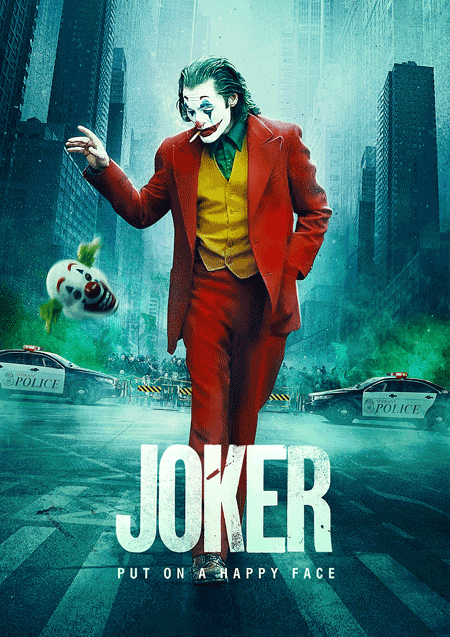Movie Review: Joker [2019]
By Sami Subhani | Cinema | Movies | Published 6 years ago
 It is safe to say that Todd Philips’ Joker has generated an unprecedented degree of controversy for what is ostensibly a comic-book flick. It is hardly unclear why; an origin story, Joker delves deep into the personal and social pathologies that drive bullied and isolated, street-clown Arthur Fleck’s evolution into the titular super-villain. The narrative of a psychologically unstable, social outcast exacting violent revenge on a society he feels has wronged and neglected him has drawn much consternation from critics and moviegoers alike. In a United States plagued by mass shootings and populist unrest, detractors have noted the eerie parallels between Arthur Fleck and the lonely, alienated young men whose debased acts of violence have caused anguish to so many.
It is safe to say that Todd Philips’ Joker has generated an unprecedented degree of controversy for what is ostensibly a comic-book flick. It is hardly unclear why; an origin story, Joker delves deep into the personal and social pathologies that drive bullied and isolated, street-clown Arthur Fleck’s evolution into the titular super-villain. The narrative of a psychologically unstable, social outcast exacting violent revenge on a society he feels has wronged and neglected him has drawn much consternation from critics and moviegoers alike. In a United States plagued by mass shootings and populist unrest, detractors have noted the eerie parallels between Arthur Fleck and the lonely, alienated young men whose debased acts of violence have caused anguish to so many.
Predictably, the issues highlighted above have probably aided Joker’s financial success, as audiences around the world flocked to theatres to catch a glimpse of the inner workings of a famous, albeit fictional psychopath. It is a formula that has succeeded before and, given its most recent box office triumph, will probably continue to do so. No matter how much society seeks to distance itself from men like Arthur Fleck, a part of us maintains a macabre fascination with such characters. How could they do that? How did they become this way? We long to make sense of the seemingly senseless. At its best, cinema can use such men as a platform to elevate both our understanding of society and the human condition. Alas Joker, despite its best efforts, falls short of such lofty expectations.
This is not to say that there isn’t plenty good to be said about this movie; Joaquin Phoenix is both mesmerising and, progressively, terrifying in his star turn. Through the haunting stares, contorted dance moves and compulsive fits of maniacal laughter, Phoenix brings an uncanny vividness to his role, with and without the clown makeup. Backed by a stellar score that evokes pathos while foreshadowing menace, Phoenix’s Joker makes us see him as the victim before he becomes the assailant. As a character study, Joker is heavily influenced by Martin Scorsese’s Taxi Driver, both centred on societal rejects amidst urban decay and decadence, who can only derive purpose in life through extreme acts of violence.
Those who have seen both movies will perhaps discern how Joker falls short of its classic predecessor; ironically the source lies in one of Joker’s main strengths, its lead character. Unlike Scorsese’s Taxi Driver, Arthur Fleck does not blend in, he sticks out like a nail waiting for the cold world around him to bring down the hammer. This ultimately consigns Joker’s attempted character study to clichéd territory, as we are left with an innocent, helpless clown versus cruel and uncaring elites, pantomime. Taxi Driver, with its more reserved anti-hero, provides a more intelligent look at the same subject matter. We see how an unstable loner projects his own insecurities on to society while the degeneracy around him reflects his own fraying mental state. Rather than spoon-feeding audiences a black-and-white revenge tale, Scorsese maintains a degree of moral ambiguity concerning the actions of his protagonist. Viewers are caught between admiring his vigilante for taking on the criminal and the corrupt, while condemning these as pseudo-heroic acts, born of an ultimately dangerous mindset.
Viewed in this context the ethical criticisms levelled at Joker are not without merit; by simplifying vigilante sentiment, it inadvertently panders to it. Fleck holds all of the moral cards, rather than challenging audiences to reflect on his motivations; Joker demands that we pity them. While one may reasonably argue that Joker’s narrative of a man driven to the edge by the world around him has real world resonance, it is ultimately too one-sided to achieve any of the moral complexity such volatile subject matter requires. Such a simplistic approach leaves Joker looking like an apology for a murderer.


